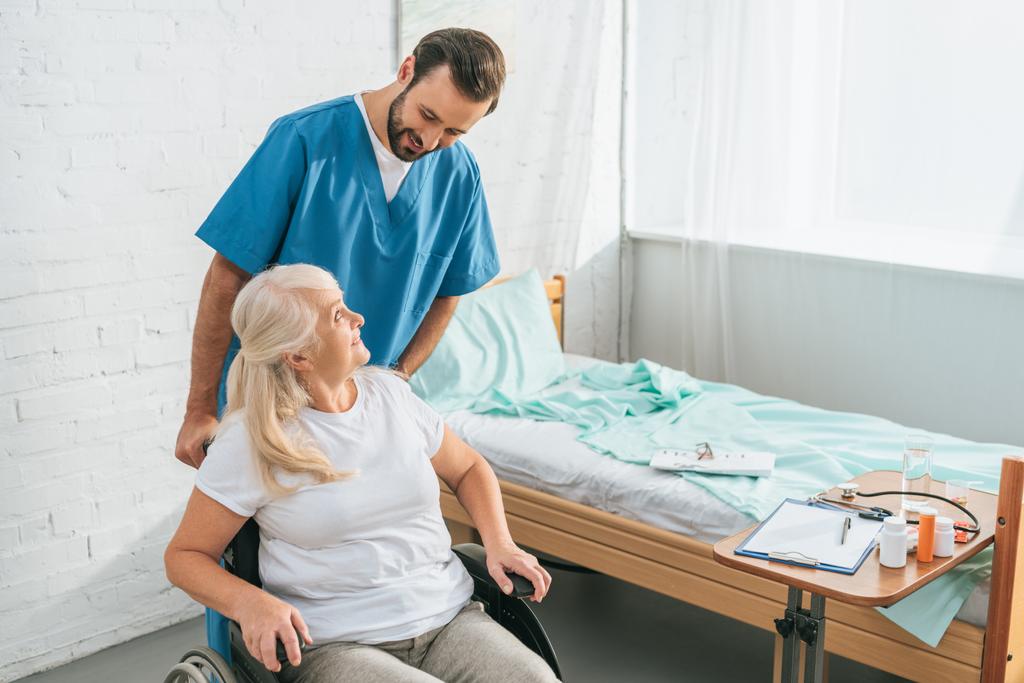As the population continues to age, the demand for senior care services is on the rise. However, many seniors prefer to age in the comfort of their own homes rather than transition to assisted living facilities. At-home senior care provides a viable solution, allowing older adults to receive personalized care, support, and assistance while preserving their independence.

In this article, we will explore the concept of at-home senior care, its benefits, and how it promotes the well-being of seniors.
Understanding At-Home Senior Care
At-home senior care, also known as in-home care or aging in place, refers to professional caregiving services provided to seniors within the familiar environment of their own homes. This type of care encompasses a wide range of services tailored to meet the individual needs of each senior. These services can include assistance with activities of daily living (ADLs) such as bathing, dressing, meal preparation, medication management, companionship, transportation, and even medical care, depending on the level of care required.
Benefits of At-Home Senior Care
- Independence and Familiarity: Aging at home allows seniors to maintain their independence and control over their daily routines. They can continue to live in a space filled with memories, surrounded by familiar belongings, and within the community, they have known for years. This sense of familiarity and autonomy greatly contributes to their overall well-being.
- Personalized Care: At-home senior care is tailored to the specific needs and preferences of each individual. Caregivers work closely with seniors and their families to create customized care plan that addresses their unique requirements. This personalized approach ensures that seniors receive the appropriate level of care and support they need to thrive.
- Enhanced Quality of Life: By receiving care in the comfort of their own homes, seniors experience an improved quality of life. They can enjoy their favorite activities, hobbies, and interests, as well as maintain their social connections within the community. At-home care promotes emotional well-being and reduces the feelings of loneliness and isolation that can often accompany aging.
- Cost-Effectiveness: Compared to the cost of residential care facilities, at-home senior care can be a more affordable option for many individuals and families. By receiving care at home, seniors can avoid the expenses associated with assisted living, such as accommodation, meals, and facility maintenance, while still receiving the necessary support.
- Peace of Mind for Families: At-home senior care also provides peace of mind for family members. Knowing that their loved ones are receiving professional care in a familiar environment alleviates the stress and worry often associated with managing the care needs of aging family members. Family caregivers can also benefit from respite periods, allowing them to recharge and take care of their own well-being.

Promoting Well-being Through At-Home Senior Care
- Physical Health: At-home senior care ensures that seniors receive assistance with daily tasks that may have become challenging due to physical limitations. Caregivers can help with mobility, exercise routines, medication reminders, and meal preparation, promoting overall physical health and well-being.
- Mental and Emotional Well-being: One of the key advantages of at-home senior care is the companionship and social interaction it provides. Caregivers offer emotional support, engage in meaningful conversations, and provide mental stimulation through activities that help seniors maintain cognitive function. This can contribute to reducing the risk of cognitive decline and improving overall mental well-being.
- Safety and Security: Aging at home can present safety concerns for seniors, but at-home care can mitigate these risks. Caregivers can assist with fall prevention, medication management, and emergency response systems, and ensure a safe living environment. This promotes a sense of security and peace of mind for both seniors and their families.
Learn more at Wiki as well.